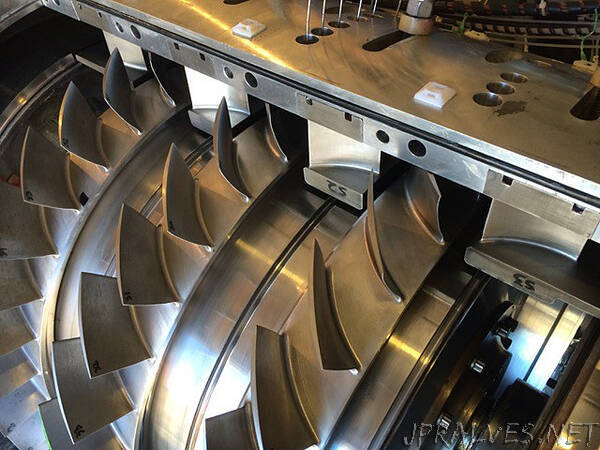
“The roar of a jet or race car engine can nearly take one’s breath away. Now imagine trying to hear through all that noise to pinpoint a problem with the engine – and stop a potentially disastrous failure.
Purdue University researchers have developed a monitoring system to detect one of the most common causes of premature blade failure in gas turbine engines – rotor forced response vibration. These vibrations can be so intense at times that they affect the ability of the engine to function correctly.
“Our technology is a blade vibration monitoring system using multiple unsteady pressure sensors to listen to the specific sound signature of gas turbine engine blade vibration,” said Yujun Leng, a research scientist in Purdue’s College of Engineering. “The flow field inside a gas turbine engine is very complicated and noisy. The key challenge is how to filter out all the noise and just listen to the sound produced by the blade vibration.”
Gas turbine blades are usually very lightly damped and can act like a tuning fork. They have a specific frequency or tone when they resonate. The Purdue technology uses multiple unsteady pressure sensors to detect the pressure waves associated with blade vibration.
“With the help of big data analytics, the blade vibration information can be used to predict the possible engine failure and optimize preventive maintenance schedules,” said Nicole Key, a professor of mechanical engineering at Purdue. “This technique has great potential to be used as a real-time blade vibration health monitoring system for the gas turbine engines used in both aviation and power generation.”
Key said pressure sensor arrays are already included in most research and commercial gas turbine engines for other purposes, so this new method can measure and monitor blade vibration at the same time, providing a lower-cost and more efficient solution.
A provisional patent for the technology has been filed through the Purdue Research Foundation Office of Technology Commercialization. The researchers are looking for partners to further test and commercialize their technology. For more information on licensing a Purdue innovation, contact the Office of Technology Commercialization at otcip@prf.org.
The technology development is partially supported by the GUIde Consortium, which includes nearly all major gas turbine engine companies.”
